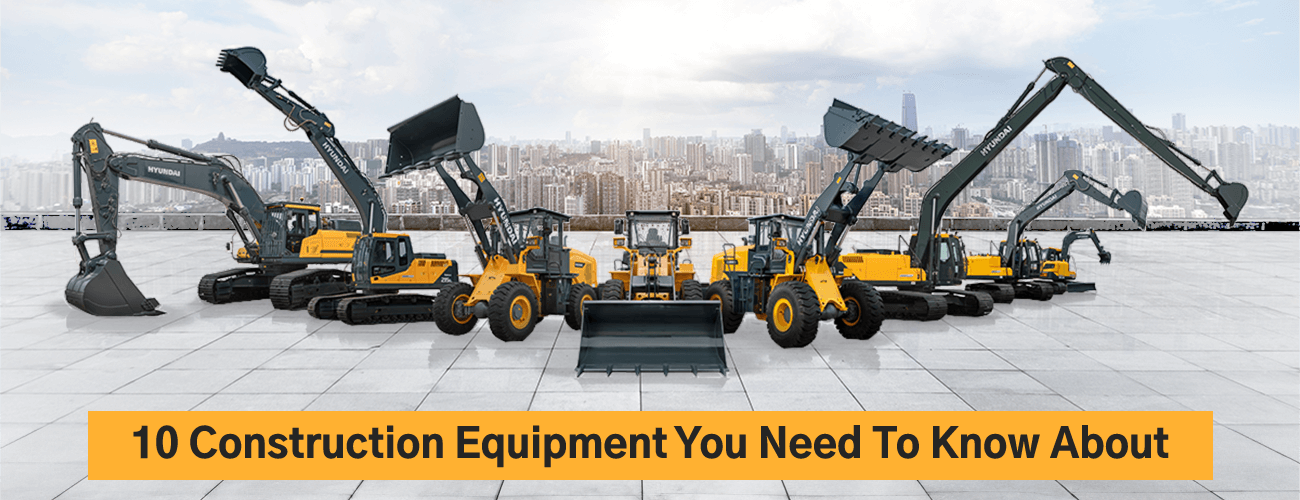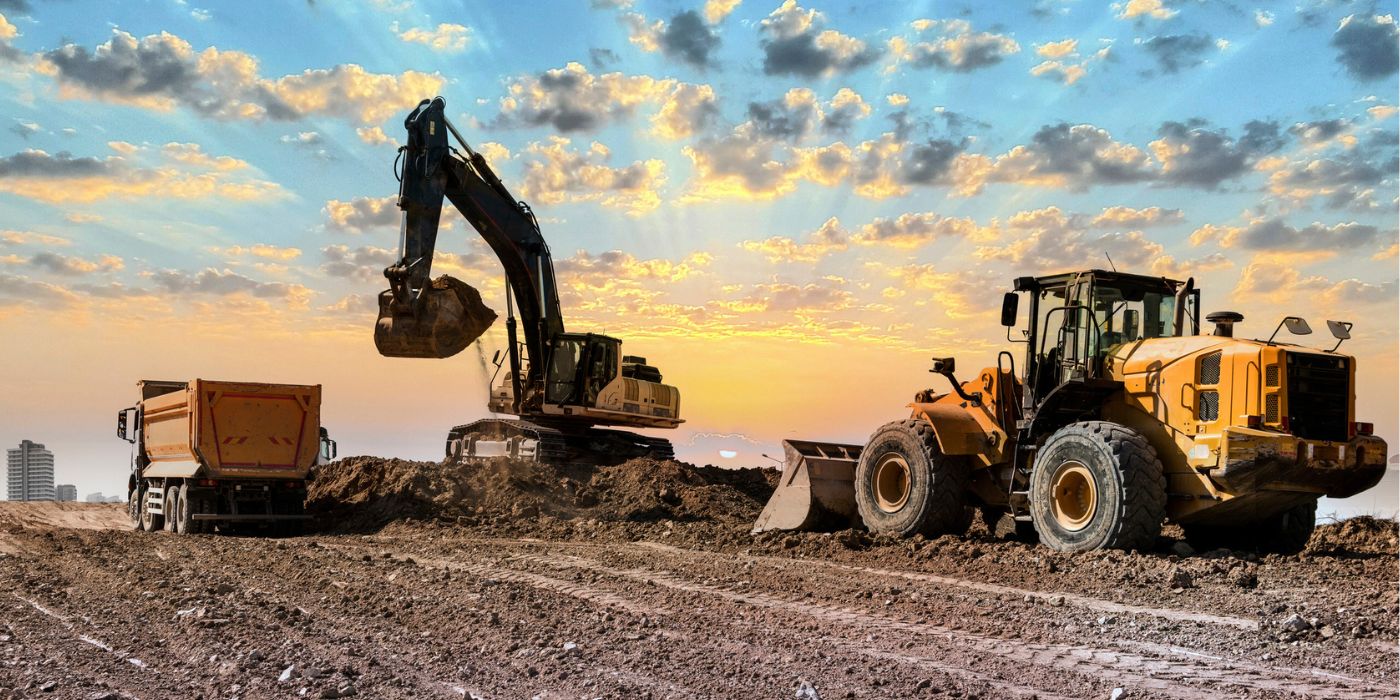Equipment Rental Company in Tuscaloosa, AL: Your Relied On Resource for Machinery
Equipment Rental Company in Tuscaloosa, AL: Your Relied On Resource for Machinery
Blog Article
Discovering the Financial Perks of Renting Construction Tools Contrasted to Owning It Long-Term
The choice between possessing and leasing building equipment is essential for monetary administration in the industry. Renting out deals instant cost savings and functional adaptability, allowing business to allot resources more efficiently. On the other hand, ownership includes significant lasting economic dedications, consisting of upkeep and devaluation. As professionals weigh these choices, the effect on cash money circulation, job timelines, and innovation accessibility comes to be significantly substantial. Recognizing these subtleties is important, particularly when thinking about exactly how they straighten with certain project requirements and monetary techniques. What factors should be prioritized to ensure optimal decision-making in this facility landscape?

Cost Comparison: Renting Out Vs. Possessing
When evaluating the financial implications of owning versus renting out building and construction tools, a complete cost contrast is essential for making educated decisions. The selection in between having and renting can considerably affect a business's profits, and recognizing the connected prices is vital.
Leasing building and construction devices generally entails lower upfront prices, enabling organizations to allot capital to various other operational demands. Rental arrangements often consist of adaptable terms, enabling companies to accessibility progressed machinery without long-term dedications. This adaptability can be specifically useful for short-term jobs or rising and fall workloads. However, rental prices can accumulate gradually, possibly surpassing the cost of possession if tools is needed for an extended duration.
On the other hand, possessing construction equipment calls for a considerable preliminary investment, in addition to recurring expenses such as depreciation, insurance coverage, and financing. While ownership can result in long-term cost savings, it likewise binds capital and may not offer the same level of flexibility as leasing. In addition, possessing equipment necessitates a dedication to its utilization, which might not constantly line up with project needs.
Inevitably, the choice to lease or own must be based on an extensive evaluation of certain job demands, monetary capability, and long-term strategic objectives.

Maintenance Expenses and Responsibilities
The selection in between having and renting construction tools not just includes monetary considerations but additionally incorporates ongoing maintenance expenditures and responsibilities. Having equipment requires a significant commitment to its upkeep, which consists of routine assessments, repair work, and potential upgrades. These obligations can rapidly collect, resulting in unanticipated prices that can strain a budget.
In comparison, when leasing equipment, upkeep is normally the responsibility of the rental firm. This plan permits service providers to prevent the financial problem related to damage, in addition to the logistical challenges of organizing repair services. Rental agreements commonly include stipulations for maintenance, indicating that professionals can concentrate on completing jobs rather than fretting about equipment problem.
Moreover, the diverse series of equipment readily available for rent allows firms to choose the most up to date models with sophisticated modern technology, which can enhance effectiveness and performance - scissor lift rental in Tuscaloosa, AL. By choosing for services, companies can stay clear of the lasting obligation of devices devaluation and the associated maintenance migraines. Ultimately, examining upkeep expenses and duties is essential for making a notified decision regarding whether to rent or possess building and construction devices, significantly affecting total task costs and operational efficiency

Depreciation Effect On Ownership
A significant element to consider in the choice to have building devices is the influence of devaluation on total possession expenses. Devaluation stands for the decrease in worth of the tools with time, affected by factors such as usage, wear and tear, and improvements in modern technology. As tools ages, its market price lessens, which can dramatically influence the proprietor's monetary setting when it comes time to trade the devices or sell.
For construction business, this devaluation can translate to significant losses if the tools is not used to its greatest potential or if it comes to be obsolete. Owners have to account for depreciation in their financial projections, which can result in greater total costs compared to renting. In addition, the tax obligation implications of depreciation can be complicated; while it may supply some tax obligation benefits, these are frequently balanced out by the reality of lowered resale value.
Ultimately, the burden of depreciation highlights the relevance of comprehending the long-term monetary dedication entailed in having construction equipment. Firms should carefully assess just how frequently they will certainly use the devices and the potential monetary effect of depreciation to make an heavy duty ring roller educated choice about ownership versus leasing.
Economic Versatility of Renting Out
Renting building tools uses substantial financial versatility, enabling firms to allot resources much more successfully. This flexibility is particularly important in a sector identified by rising read this article and fall job demands and differing work. By opting to rent, organizations can prevent the considerable resources expense needed for acquiring tools, preserving cash money circulation for various other operational needs.
Furthermore, renting tools makes it possible for companies to tailor their equipment options to particular project demands without the long-term dedication connected with possession. This suggests that organizations can quickly scale their tools supply up or down based on expected and present job demands. As a result, this adaptability lowers the danger of over-investment in equipment that may end up being underutilized or obsolete over time.
One more economic benefit of renting out is the potential for tax obligation benefits. Rental payments are usually taken into consideration operating budget, enabling instant tax deductions, unlike depreciation on owned devices, which is topped numerous years. scissor lift rental in Tuscaloosa, AL. This immediate cost acknowledgment can additionally improve a firm's cash money position
Long-Term Task Factors To Consider
When reviewing the long-term requirements of a building and construction business, the decision in between renting out and having devices comes to be more complex. For tasks machinery rentals near me with extended timelines, acquiring equipment may appear useful due to the capacity for reduced overall expenses.
The building and construction industry is progressing quickly, with new equipment offering enhanced effectiveness and security features. This versatility is especially valuable for businesses that handle varied jobs needing various kinds of equipment.
Additionally, economic security plays a crucial duty. Possessing tools typically entails considerable capital financial investment and devaluation concerns, while leasing permits even more predictable budgeting and cash money flow. Inevitably, the choice between possessing and renting needs to be straightened with the calculated goals of the construction company, taking into account both expected and existing project needs.
Conclusion
Finally, renting construction equipment offers considerable economic benefits over long-term possession. The minimized ahead of time expenses, elimination of maintenance responsibilities, and evasion of devaluation add to improved capital and economic flexibility. scissor lift rental in Tuscaloosa, AL. Furthermore, rental repayments function as prompt tax obligation reductions, even more benefiting professionals. Inevitably, the choice to rent out instead of own aligns with the dynamic nature of construction projects, permitting adaptability and access to the newest equipment without the financial concerns linked with ownership.
As tools ages, its market value decreases, which can dramatically affect the proprietor's economic position when it comes time to trade the devices or sell.
Renting construction equipment offers considerable monetary versatility, allowing firms to allot resources much more efficiently.Furthermore, renting equipment allows companies to tailor their devices choices to details project demands without the long-term commitment connected with ownership.In final thought, renting out construction tools offers substantial monetary benefits over lasting ownership. Ultimately, the decision to rent instead than own aligns with the vibrant nature of building and construction jobs, permitting for adaptability and accessibility to the latest tools without the economic worries associated with possession.
Report this page